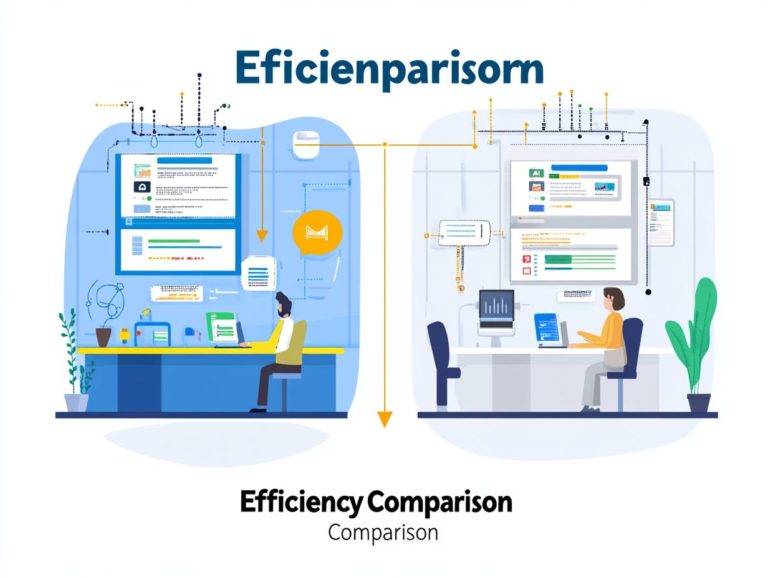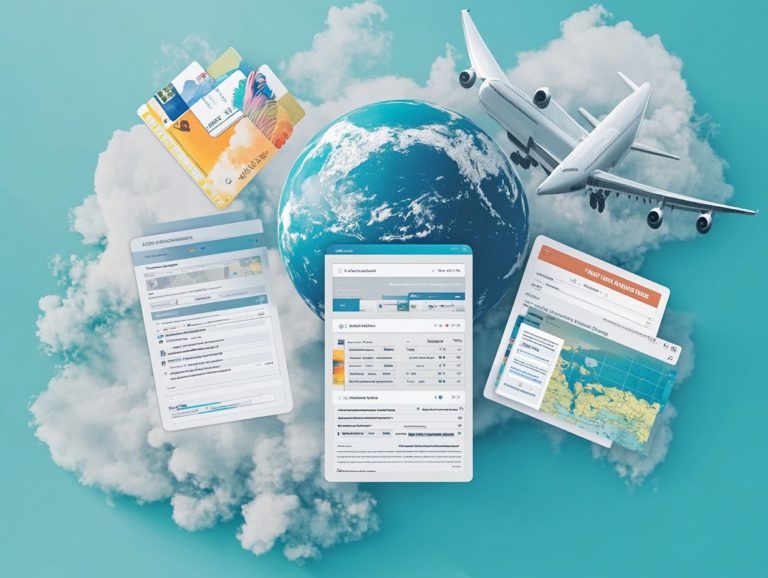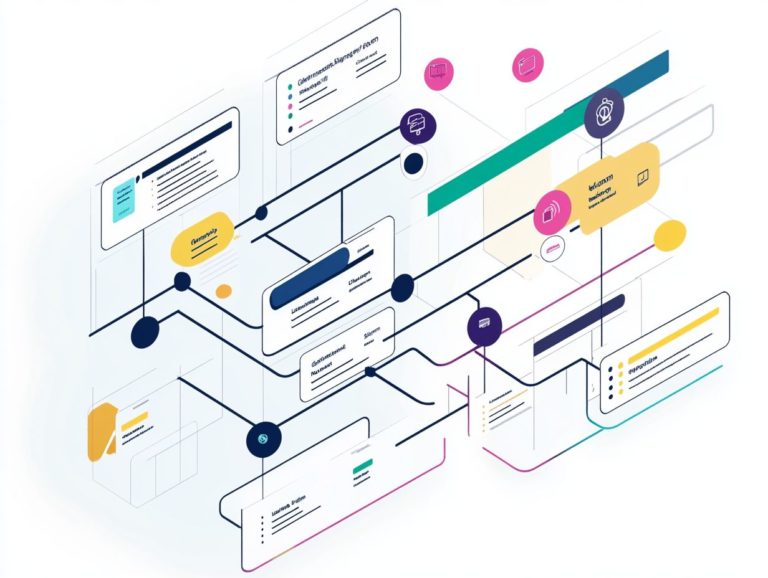Comparing CRM Scalability: Which is Right for You?
In today s fast-paced business landscape, having a Customer Relationship Management (CRM) system that evolves alongside your company is essential. Understanding CRM scalability can significantly impact how effectively you manage customer interactions and drive growth.
This article delves into what CRM scalability truly means, the many benefits it offers, and the key factors you should consider when selecting a scalable CRM solution.
You ll find insights on some popular options available in the market, along with best practices for seamless implementation.
Whether you re a startup or an established enterprise, discovering the right CRM can enhance your flexibility and efficiency while also saving costs. Join us to discover how to make choices that can reshape your business’s future!
Contents
- Key Takeaways:
- Understanding CRM Scalability
- Benefits of Scalable CRMs
- Factors to Consider When Choosing a Scalable CRM
- Popular Scalable CRMs on the Market
- How to Implement a Scalable CRM
- Frequently Asked Questions
- What is CRM scalability and why is it important to compare?
- What are some key factors to consider when comparing CRM scalability?
- What are the different types of CRM scalability options available?
- Which type of CRM scalability is best for my business?
- What are some potential challenges to consider when comparing CRM scalability options?
- How can I determine which CRM scalability option is right for my business?
Key Takeaways:

- Choose a scalable CRM based on your business size and growth projections to ensure it can accommodate your future needs.
- Look for a scalable CRM that offers a variety of features and customization options to meet your specific business needs.
- Implementing a scalable CRM can lead to improved flexibility, growth potential, and cost savings for your business.
Understanding CRM Scalability
Understanding CRM scalability is vital for any business looking to elevate its customer relationship management capabilities. For insights on this topic, check out what to look for in a CRM.
Scalable CRM solutions enable you to adapt seamlessly to your expanding needs. This ensures that as your organization grows, your systems can efficiently manage increased data collection, customer interactions, and reporting metrics.
This flexibility is essential for maintaining high levels of customer satisfaction and improving your sales processes, all while effectively supporting your marketing campaigns.
What is CRM Scalability?
CRM scalability is all about your customer relationship management system s ability to handle a surge in data, users, and transactions without missing a beat. This capability affects key performance metrics like response times and data accessibility as your business grows.
As demands on your system ramp up, bringing automation and AI into the mix becomes necessary. These technologies don’t just make processes smoother; they also elevate the overall efficiency of your customer interactions.
A scalable CRM system adapts to fluctuating workloads, enabling your teams to manage customer relationships effectively even during peak times. This adaptability allows your company to uphold high service standards, cultivating long-term customer loyalty and satisfaction while optimizing resource management.
Benefits of Scalable CRMs
Scalable CRMs offer a wealth of advantages that can greatly elevate your business operations.
By enhancing flexibility and supporting growth, they pave the way for improved customer satisfaction and substantial cost savings in the long run.
Improved Flexibility and Growth Potential
One of the key advantages of utilizing a scalable CRM is the enhanced flexibility it provides, allowing you to adapt your systems as your business evolves. This adaptability is essential in today s fast-paced market, where unexpected challenges and new growth opportunities can emerge at any time.
Scalable CRMs are designed to grow with your company s needs. They seamlessly integrate enhancements that streamline the customer journey and optimize task management.
By offering tools that can adjust to rising customer demands or shifts in strategy, these systems enable you to maintain consistent engagement with your clientele. This ensures that no interaction slips through the cracks.
This adaptability boosts efficiency and nurtures long-term relationships grounded in trust and responsiveness.
Cost Savings
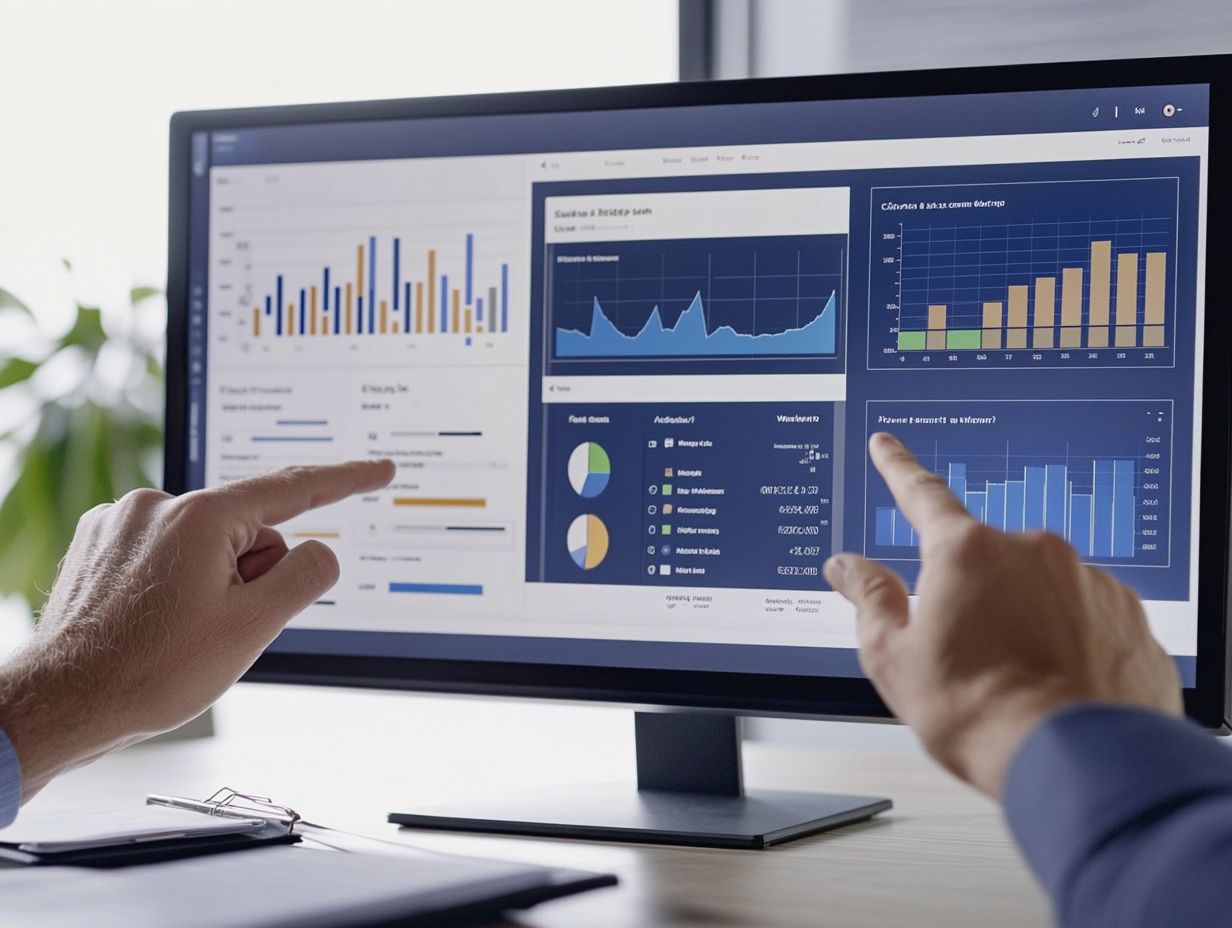
A scalable CRM can save you money over time. It s especially useful for small businesses looking to improve customer management without high costs.
Invest in a system with essential features that meet your current needs. This way, you avoid wasting money on features you won t use.
As your business expands, you can explore a variety of CRM options that align with your shifting demands, ensuring you only pay for what you genuinely need. This way, you enjoy the flexibility to upgrade features without straining your budget.
Factors to Consider When Choosing a Scalable CRM
When selecting a scalable CRM, consider various factors. Think about your business size, growth projections, and how to choose between CRM software options that will best align with your unique needs.
This careful evaluation will ensure that the CRM you choose supports your ambitions effectively.
Business Size and Growth Projections
Understanding your business size and accurately projecting future growth is essential when selecting a scalable CRM that can adapt to your evolving customer data needs. Learning how to ensure CRM scalability is crucial for ensuring that the solution you choose can seamlessly meet increasing demands.
As you navigate a landscape filled with diverse customer interactions, having a CRM that effectively manages performance metrics becomes vital. By analyzing both your current capacities and future needs, you can avoid costly migrations or system limitations later on.
A well-selected CRM not only enhances customer interaction but also supports strategic decision-making, enabling your teams to respond swiftly to market changes and customer feedback.
Features and Customization Options
The features and customization options available in various CRM solutions can profoundly influence their effectiveness in addressing your unique business needs.
Consider scalable CRMs; they typically come equipped with robust marketing automation capabilities. These features enable you to streamline your outreach through tailored campaigns, enhancing efficiency while elevating engagement with your target audiences.
Comprehensive reporting analytics provide you with valuable insights into customer behavior and sales performance, facilitating knowledge-based decision making.
Many solutions also include user communities and forums, allowing you to exchange tips and experiences with others, thereby enriching your resource pool.
Customer reviews often underscore the adaptability of these systems, as they can be customized to meet specific requirements, ensuring that your CRM experience is uniquely yours.
Popular Scalable CRMs on the Market
Exciting options await you in the world of scalable CRMs! Explore top names like Salesforce, HubSpot, and Zoho, each offering unique features tailored for different business needs.
Comparison of Features and Pricing
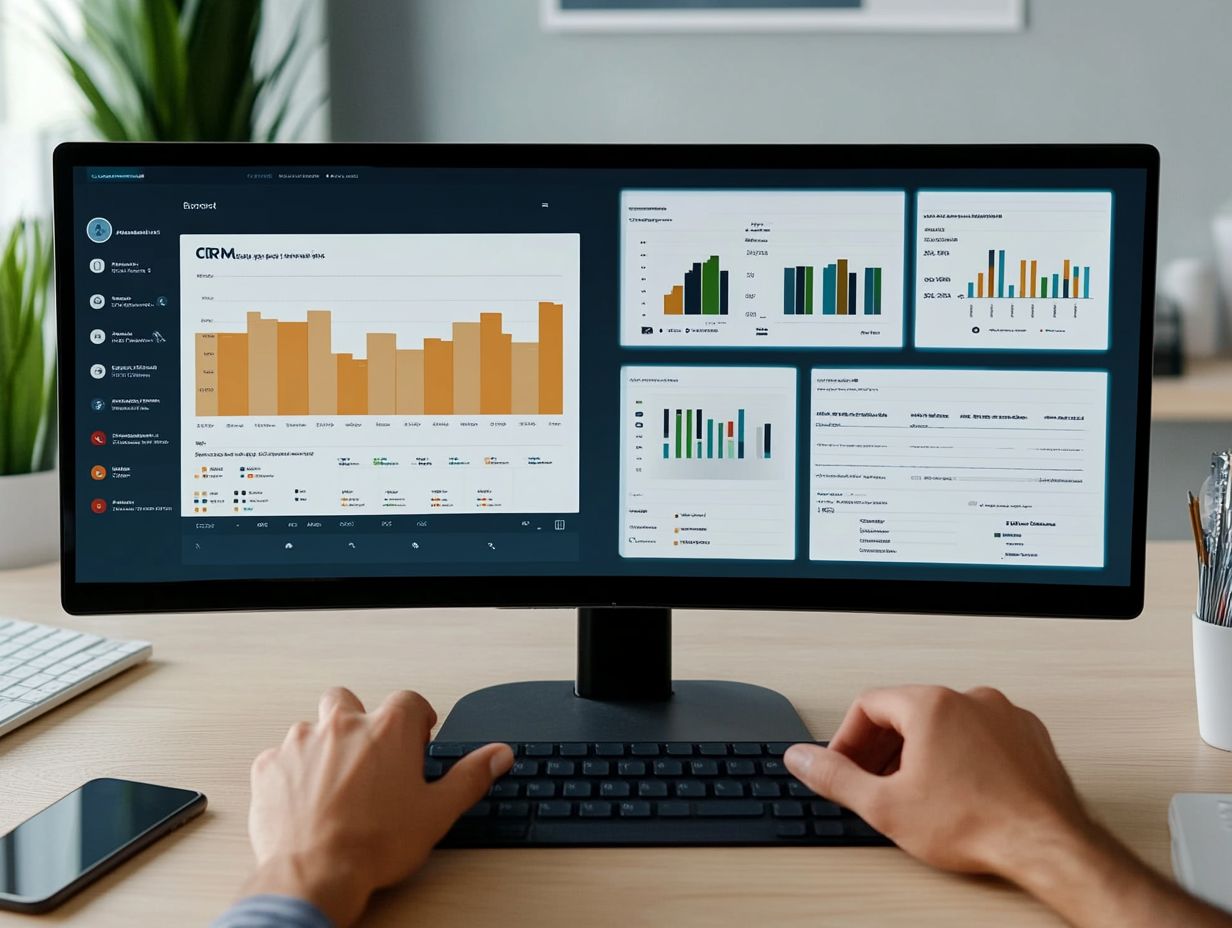
When comparing features and pricing of various CRM solutions, it’s crucial to assess how well they align with your unique business operations and customer management needs.
Take a close look at the usability of the interface an intuitive and user-friendly solution can significantly boost productivity and encourage adoption among your team members.
Don t overlook integration options, either; ensuring compatibility with existing tools like marketing automation, email platforms, and project management systems can streamline your workflow and enhance data accuracy.
Lastly, scrutinizing the automation capabilities of each CRM is essential. Effective automation can save you time and minimize manual errors, freeing your team to focus on cultivating meaningful customer relationships instead of getting bogged down in repetitive tasks.
How to Implement a Scalable CRM
Act now to implement a scalable CRM! Commit to best practices and strategic planning for seamless workflows and user adoption throughout your organization.
Best Practices and Tips
Adopting best practices during your CRM implementation can significantly elevate user experience. It ensures that your Customer Relationship Management solution adapts to the changing behaviors of your customers.
To achieve this, prioritize comprehensive training for all users. This builds confidence and promotes consistent use of the system.
Engaging users throughout this process fosters a sense of ownership. This enables teams to leverage the platform for valuable insights into customer interactions.
Continuously assessing CRM performance is vital. Regularly reviewing key metrics uncovers areas for improvement while aligning the tool s capabilities with market demands.
This proactive approach drives enhanced customer satisfaction and loyalty.
Frequently Asked Questions
Discover the most common questions about CRM scalability and how it can benefit your business.
What is CRM scalability and why is it important to compare?
CRM scalability is the ability of a Customer Relationship Management system to grow with your business needs. It’s crucial to compare different CRM options and understand how to choose the right CRM software that can support your expansion.
What are some key factors to consider when comparing CRM scalability?
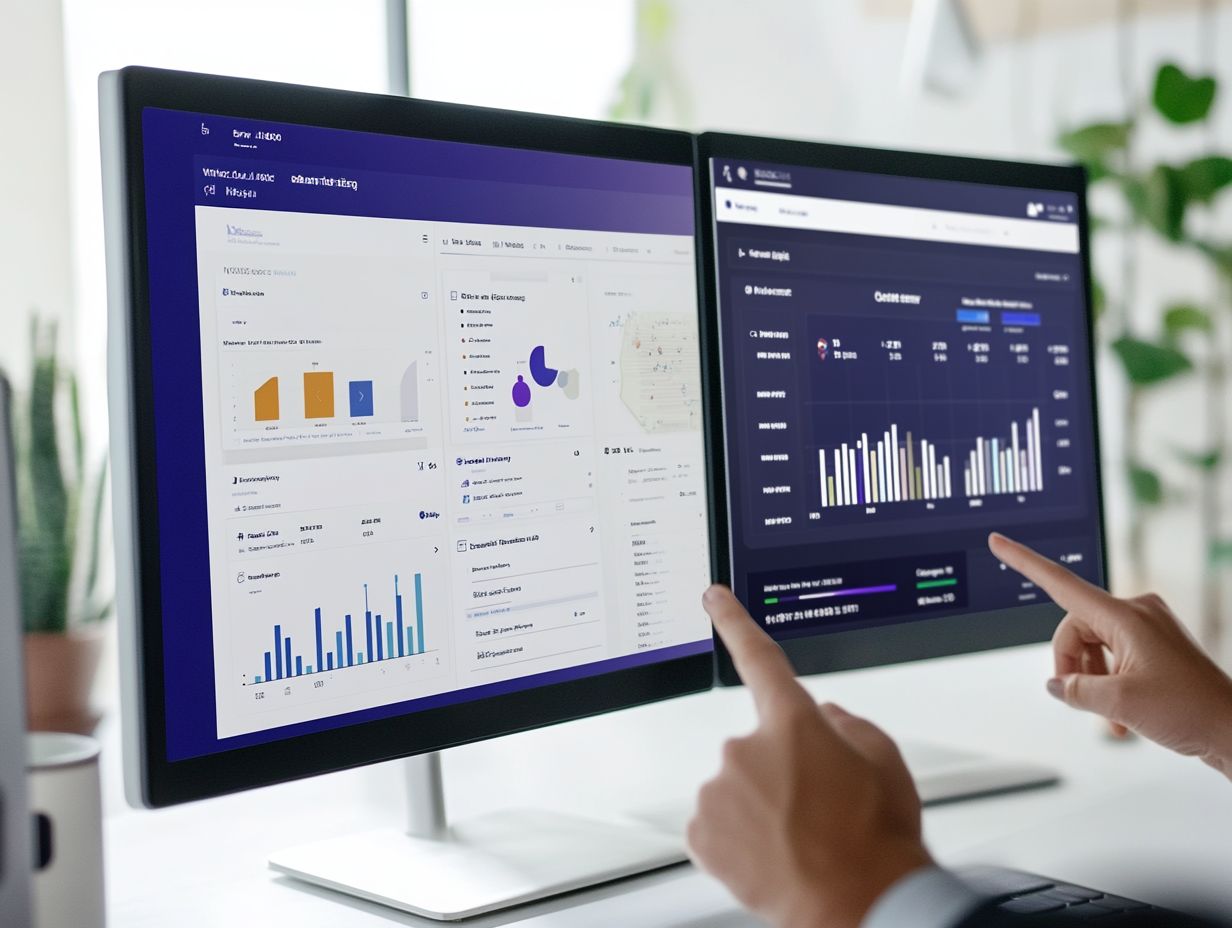
Consider the number of users, data storage capacity, and integration capabilities with other systems. Assess your current and future business needs carefully.
What are the different types of CRM scalability options available?
There are two main types: vertical and horizontal scalability. Vertical scalability adds more resources like servers, while horizontal scalability involves adding more instances of the CRM system to share the workload.
Which type of CRM scalability is best for my business?
The best type depends on your unique needs. Vertical scalability is often more cost-effective for smaller businesses, while horizontal scalability suits larger businesses with unpredictable growth.
What are some potential challenges to consider when comparing CRM scalability options?
Challenges include the cost of implementing and maintaining the scalability option. Also, consider the potential for downtime or data loss during the scaling process.
How can I determine which CRM scalability option is right for my business?
Thoroughly assess your current and future needs. Compare them to the features of different CRM systems and consult with experts or businesses with relevant experience.

